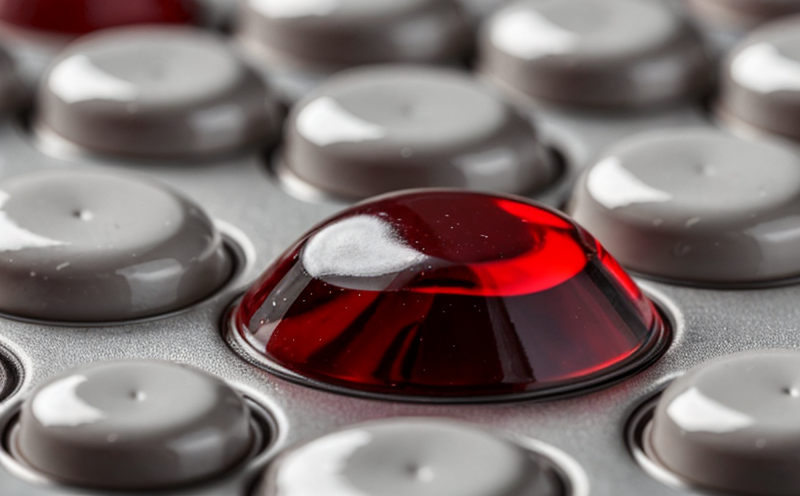FDA BAM Antimicrobial Resistance Detection Testing
The FDA Bacteriological Analytical Manual (BAM) antimicrobial resistance detection testing is a critical service in ensuring that pharmaceutical products, particularly antibiotics, are safe and effective. This procedure, derived from the U.S. Food and Drug Administration's BAM guidelines, focuses on detecting the presence of antibiotic-resistant bacteria within formulations to comply with stringent regulatory requirements.
The primary goal of this service is to support the development and manufacturing processes by identifying potential quality issues early in the pipeline. By adhering to these standards, pharmaceutical companies can ensure their products meet the highest safety and efficacy standards set forth by the FDA. This testing helps in reducing the risk of adverse events associated with antimicrobial resistance, which is a growing global health concern.
The process involves several key steps that are meticulously followed to ensure accuracy and reliability. Specimens are collected from various sources such as clinical samples, environmental swabs, or laboratory cultures. These specimens are then prepared according to established protocols before being subjected to the BAM testing procedures. The methodologies used include disk diffusion tests, broth microdilution, and Etest strips, among others.
The results obtained from these tests provide valuable insights into the antimicrobial susceptibilities of different strains of bacteria. This information is crucial for drug developers in refining their formulations and ensuring they target resistant organisms effectively. Additionally, this testing supports compliance with regulatory requirements such as FDA's BAM.
The service also plays a pivotal role in R&D efforts by providing data that can lead to the discovery of new antimicrobial agents or modifications to existing ones. It aids quality managers and compliance officers in maintaining product integrity, ensuring that all steps from raw material procurement to final product release are conducted according to best practices.
For procurement teams, this service ensures that only high-quality materials free from antibiotic-resistant contaminants are used in the production process. This not only enhances product safety but also supports sustainable manufacturing practices by minimizing waste and resource consumption.
EuroLab Advantages for FDA BAM Antimicrobial Resistance Detection Testing
At EuroLab, our expertise in antimicrobial resistance detection is unmatched. Our state-of-the-art facilities equipped with the latest technology ensure precision and accuracy in every test we conduct. With a team of highly skilled microbiologists and chemists dedicated to this field, we offer unparalleled reliability and consistency.
- Accurate Results: Utilizing advanced testing methodologies, our lab ensures that all results are precise and can be trusted for decision-making purposes.
- Compliance Expertise: Our team is well-versed in the latest FDA BAM guidelines, ensuring complete compliance with regulatory standards.
- Efficient Turnaround Times: Leveraging our streamlined processes, we provide quick turnaround times without compromising on quality or accuracy.
We understand that time is of the essence in pharmaceutical development and manufacturing. Our commitment to efficiency allows you to receive timely results, enabling quicker decision-making processes.
Environmental and Sustainability Contributions
- Reduction in Antibiotic Resistance: By detecting antibiotic-resistant bacteria early, this service helps prevent the spread of resistant strains, contributing to public health.
- Eco-Friendly Practices: Our adherence to strict quality control measures ensures that no unnecessary resources are wasted during testing. This minimizes environmental impact while maintaining high standards of accuracy and precision.
The detection of antibiotic-resistant bacteria through BAM testing is a crucial step in addressing the global challenge of antimicrobial resistance. By identifying these strains early, we can take proactive steps to mitigate their spread, thereby protecting both human and animal health.
Competitive Advantage and Market Impact
EuroLab's FDA BAM antimicrobial resistance detection testing provides a significant competitive edge for pharmaceutical companies. By ensuring compliance with the latest regulatory standards, our service helps maintain product quality and safety, which is essential in today’s highly regulated environment.
- Enhanced Reputation: Companies that demonstrate adherence to stringent quality control measures enjoy enhanced reputations among customers and stakeholders alike.
- Increased Customer Trust: Proven compliance with FDA guidelines instills confidence in consumers, leading to increased market share.
In the crowded pharmaceutical industry, maintaining high standards of quality is not just a requirement but also a strategic asset. EuroLab's expertise and commitment to excellence set us apart from competitors, allowing our clients to stay ahead in an increasingly competitive landscape.





